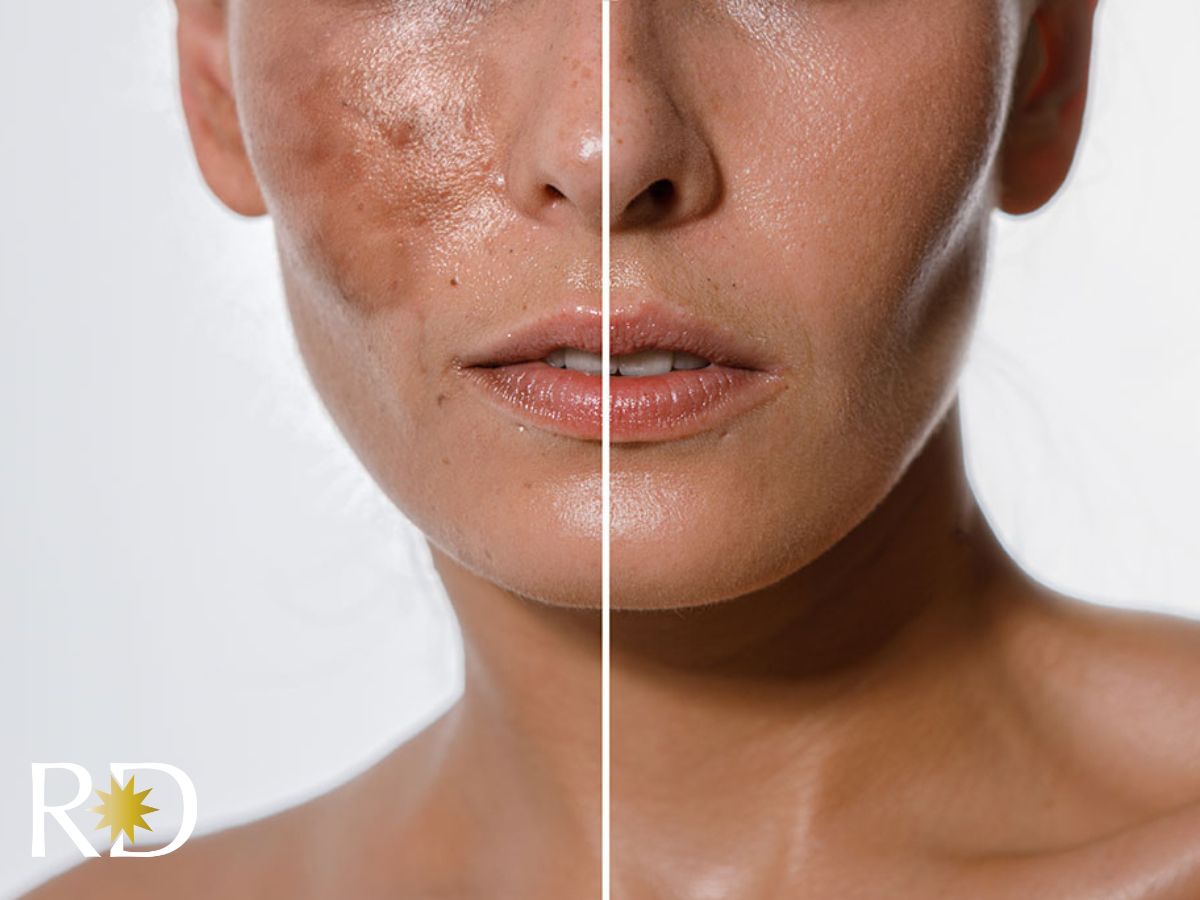Melasma, a common skin disorder characterized by dark, brown patches of skin, predominantly affects women. While men can also develop melasma, approximately 90% of cases are found in women and appear on their face and neck.
Since the face plays a crucial role in communication and social interaction, we understand that these changes can profoundly impact our patient’s social life and overall self-confidence. Let’s delve into why women are more prone to experiencing melasma and what can be done to address this skin condition.
Hormonal Fluctuations:
Women experience significant hormonal changes throughout their lives, from puberty to pregnancy to menopause. Fluctuations in estrogen levels, particularly during pregnancy, play a crucial role in melasma development. The surge in estrogen is directly correlated with heightened skin pigmentation, providing a potential trigger for melasma. Pregnant women, with 50-70% experiencing melasma, often encounter this condition referred to as chloasma or the “mask of pregnancy,” which typically diminishes postpartum or during breastfeeding.
Sun Exposure:
Women have a higher inclination towards sun exposure, whether basking on sunny beach days or utilizing tanning beds. Exposure to the sun’s ultraviolet rays stimulates melanocytes, the pigment-producing cells in the skin, leading to worsened melasma. The seasonal changes, especially in the summer, can exacerbate melasma due to increased UV exposure. Employing adequate sun protection like SPF when outdoors is essential, considering the association between sun exposure and the prevalence of melasma in women.
At Revival Dermatology, we understand women’s susceptibility to melasma can be attributed to factors like hormonal fluctuations and sun exposure habits. Understanding these influences and adopting preventive measures such as sun protection, choosing skin-friendly products, and being mindful of hormonal changes can aid in managing and improving melasma symptoms.
We also offer treatments to help minimize the appearance and aid in the management of melasma: SkinPen, PRP, and VIPeels. To learn more about these and other treatments for melasma, schedule a consultation with a member of our skincare team.

Watch Dr. Lisa Pruett discuss the importance of melasma treatment plans for lasting results.
If your melasma persists or becomes bothersome, book an appointment and let us help you address your concerns and get on a path to clearer skin.
Related Articles:
Melasma Management: Let’s Talk Sun Protection
Melasma: Causes, Symptoms, and Dermatologist Support
Platelet-Rich Plasma (PRP) for Skin Rejuvenation





